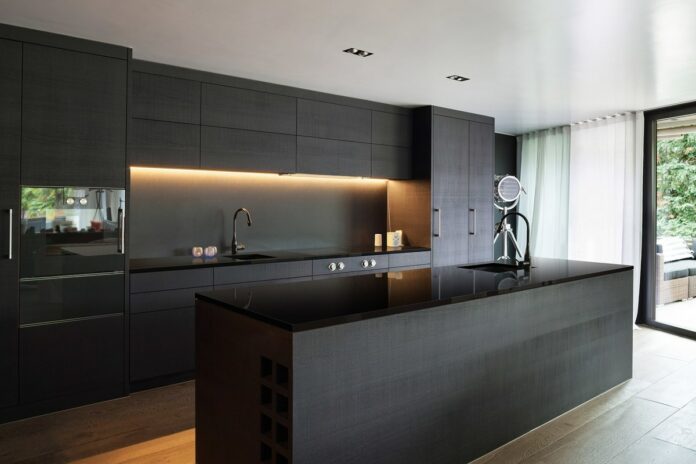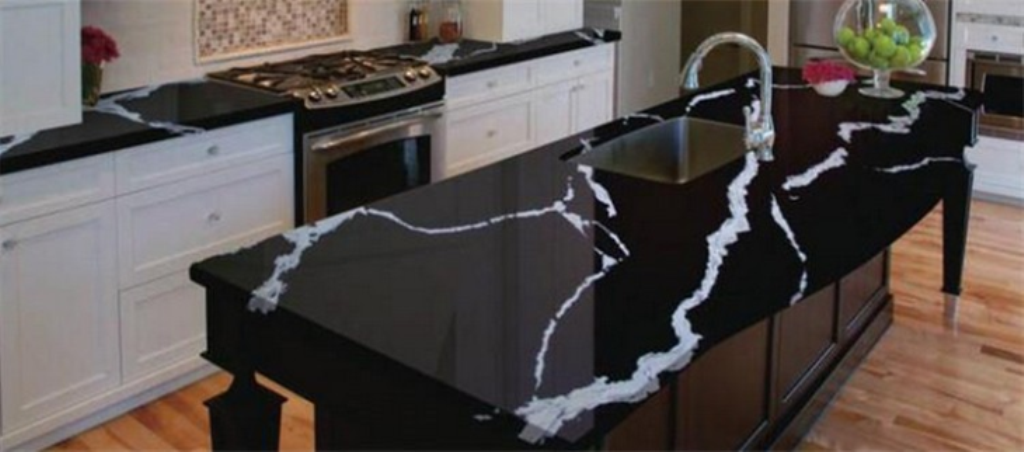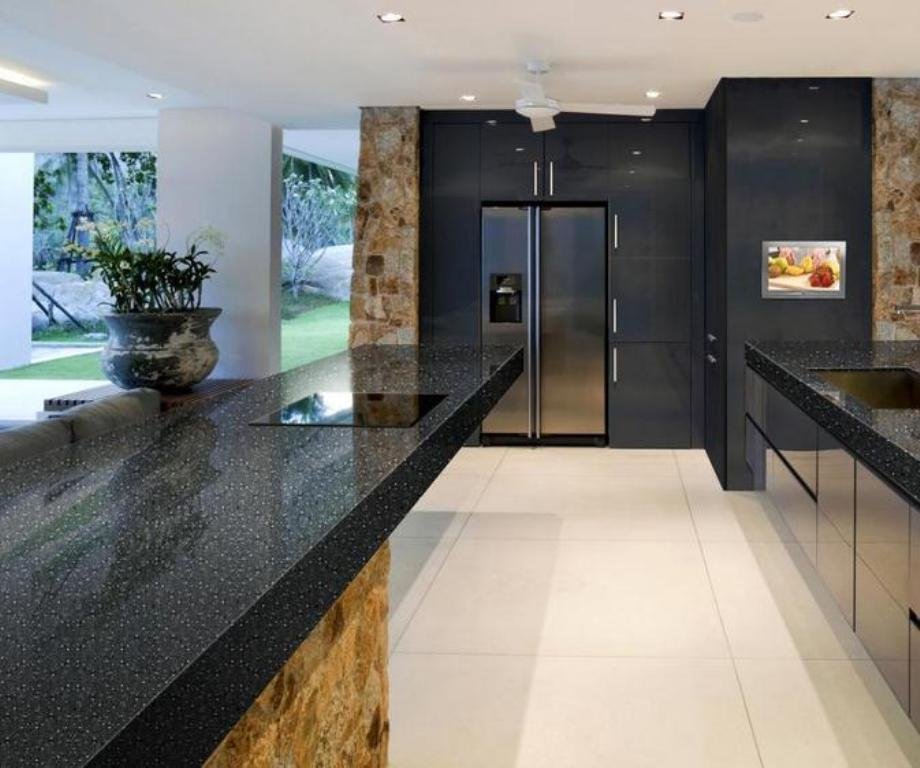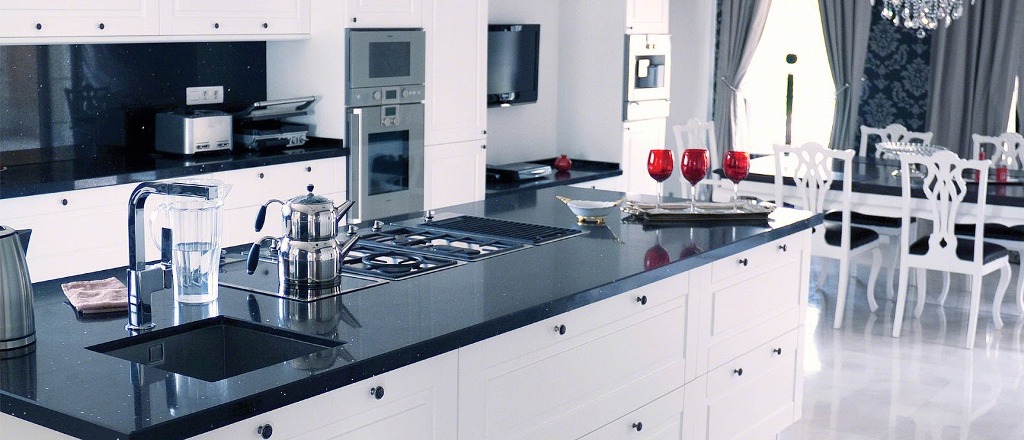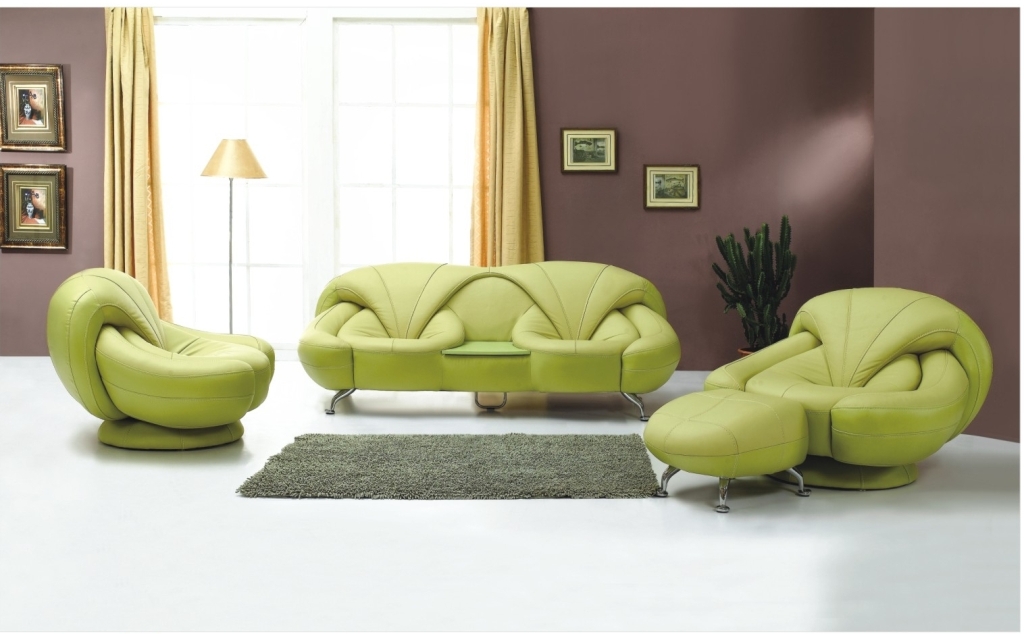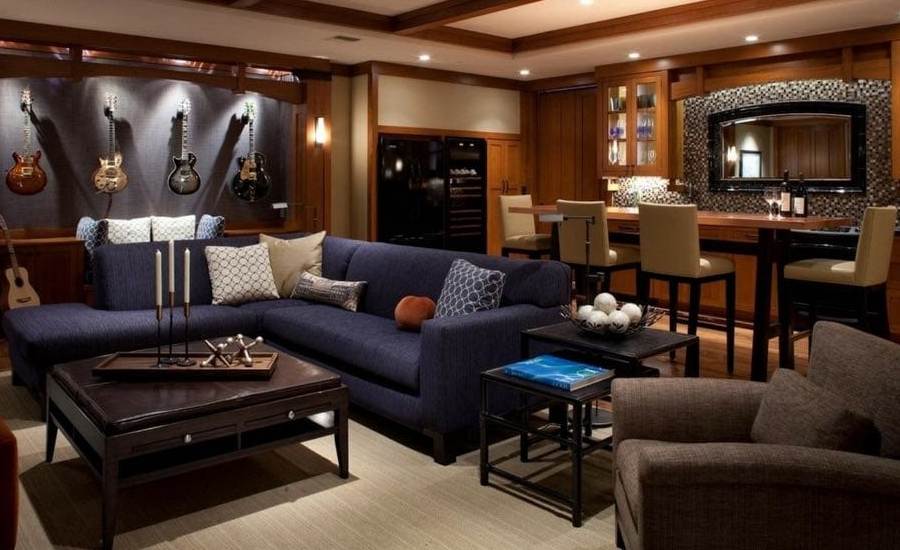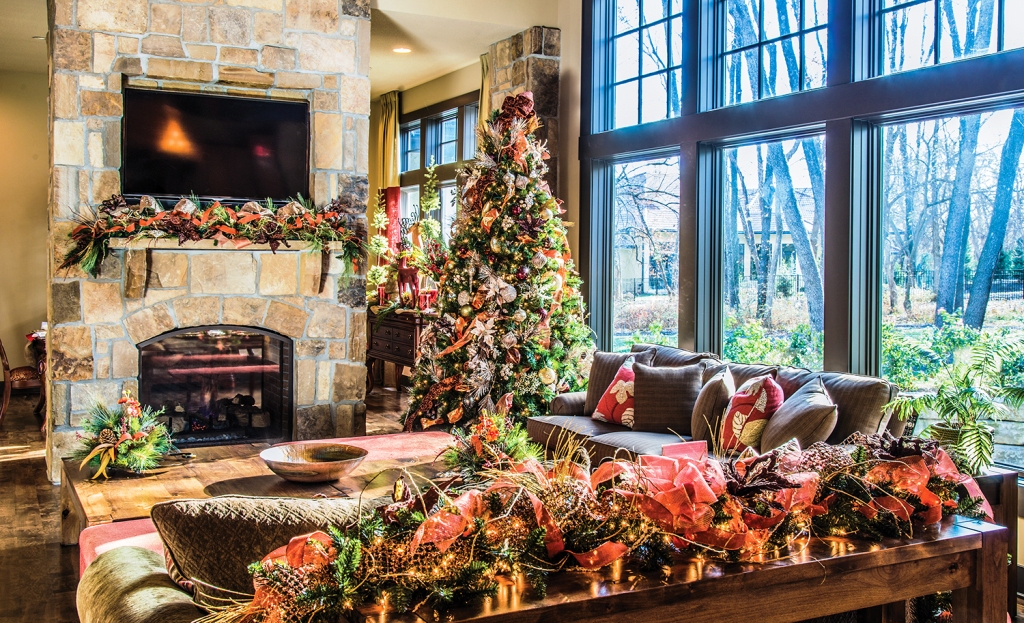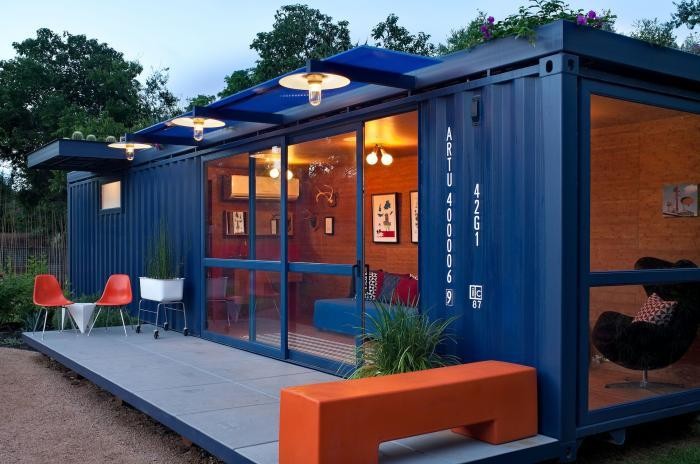Do you crave a black quartz countertop? It’s a great choice for bars, kitchens, dining rooms, bathrooms, etc.
If you have a million questions that you need answered before you order your beautiful quartz slab, you’re on the right page. From how black quartz countertops are made to their performance & durability, here are the answers to some frequently asked questions.
a. How are black quartz countertops made?
The countertops are made from natural quartz. Quartz is a natural mineral found in the earth’s crust. It’s so plentiful that it is the second most abundant mineral after feldspar. Natural quartz crystals are clear and white, and they are extracted through open-pit mining.
Large quartz rocks are then ground into small sand-sized particles. The particles have to be bound together to form rectangular countertops. Polymer resins are the preferred binding agents. They make up 3 to 7% of the final slab. Quartz acts as the filler and makes up 93% to 97% of the final piece.
Pigments are added to produce different colors. UV stabilizers enhance the resistance of the slab to direct sunlight. Various decorative effects may be achieved by incorporating shells, ground-glass, and other items.
The standard slab has a length of 3 meters and a height of 1.4 meters. Polishing gives black quartz countertops their high-glossiness, and it’s done using diamond stone pads.
b. Are granite countertops better than black quartz countertops?
It’s a hotly debated question that deserves a definitive answer. Granite is completely natural. After extraction, it’s sawed and polished. Going by looks and naturalness alone, you would be tempted to pick granite.
Quartz is engineered, and this is a good thing because it lacks the problems inherent in granite. For instance, it’s not porous, which is ideal for kitchen situations where there are countless spills.
Some granite slabs can be quite costly. While a high-quality quartz slab goes for the same price as a mid-market granite top. Transporting granite is especially precarious as the stone can break easily. Many experts recommend quartz over granite for kitchen countertops. Granite has faded in popularity, and quartz Kitchen is now king.
c. Is black quartz found naturally in nature?
Yes. Smoky quartz forms when electrons are lost from the crystal lattice structure of quartz as a result of radiation.
d. Do black quartz countertops stain or scratch easily?
When shopping around, you’ll encounter promotional terms like “stain-proof or scratch proof.” Now, scratching involves producing a permanent mark on the surface of something. Harder materials can scratch softer materials.
Diamond is nature’s hardest material. It has a 10 rating on the Mohs scale of hardness. Quartz has a hardness of 7. Granite 6 to 7. Marble 3 to 4. To get an idea of how hard quartz is, the surface hardness of a steel file is 6.5. So a black quartz countertop will withstand most scratches.
Next, let’s understand how staining occurs. Porous surfaces develop stains when they absorb the staining liquid leading to discoloration. Quartz is non-porous, so it should not stain. Right?
That’s not entirely accurate as staining can occur when the surface of the quartz countertop reacts with the staining fluid. For instance, sodium hydroxide or paint thinner can wreak havoc on your quartz countertop. In the kitchen, countertops are hardly exposed to reactive solvents, so the likelihood of staining is minimal.
You can also take preventive measures to avoid scratches. Don’t drag heavy pans on your countertop. Don’t cut items directly on the surface. Be civil by using a chopping board. Don’t let your kid chip away on the slab with a sharp knife. These are obvious pointers, really.
e. Are black quartz countertops safe for food preparation?
Ever had stomach upsets of unknown causes? Microbes can’t be seen by the naked eye, so they are quite good at hiding in plain sight. Engineered quartz is as close as you can get to assure cleanliness.
Not only are the surfaces easy to clean, but manufacturers typically add an antimicrobial compound in the formulation. The compound becomes part of the quartz matrix and prevents the build-up of pathogens such as E.Coli.
With a porous surface, those nasty pathogens will have voids to call home. To enhance the hygiene of your kitchen by choosing quartz, and you might save on trips to the doctor.
f. Do black countertops have different designs?
They sure ain’t plain and boring. Designers will play around with engineered quartz to create beautiful supernatural creations. You’ll find slabs with intricate white veinings like Vanilla Noir or slabs with white freckles like Jet Black quartz. Here is more info and black quartz countertop pictures.
g. What are the drawbacks of quartz?
No material is perfect. And though quartz comes pretty close, it suffers from some drawbacks. Continuous exposure to harsh UV rays will discolor the slab. That’s why it’s never meant for outdoor applications.
The second drawback has to do with heat exposure. Natural quartz might have a melting point of up to 1705°C, but the polymer resins such as epoxy and polyester can’t withstand high temperatures. That’s why it’s never advisable to place a hot pan directly on the countertop. Heat pads are affordable and will protect your slab quite well.
h. What is the lifetime of quartz countertops?
Quartz countertops are built to last. The first manufacturer to offer a lifetime guarantee for quartz countertops was Ceasarstone back in 2008. Most companies provide 10 or 15-year limited warranties. It is a true testament to the durability of the quartz. Good care also goes a long way to keep your countertop looking sharp for many years to come.
I. Is marble better than quartz for kitchen countertops?
A big no! And the reason has to do with the hardness of marble. It will scratch and maybe chip with heavy use. It would also require regular maintenance. The price is also higher. Marble is also threatened by acids. Even an accidental vinegar spill may blemish your marble top. Quartz lacks these limiting defects.
Your call to action
Embrace black kitchen countertops! They are durable, strong, and resistant to scratches and stains. What more could you ask for? In case you have more questions, the comments section below is the best place to ask them.

